Dalai Lama meeting 'unnecessary provocation': analyst
Updated: 2015-02-10 00:34
By PU ZHENDONG in Beijing(China Daily USA)
|
||||||||
The United States' reception of the Dalai Lama and the sheltering of his separatist nature is an "unnecessary provocation" that will jeopardize the robust development of China-US ties, a Chinese analyst said.
Thursday's National Prayer Breakfast marked President Barack Obama's first public encounter with the exiled Buddhist monk, whom Beijing considers a secessionist who challenges the stability of the southwest Tibet autonomous region.
In his speech, Obama extended a special welcome to the Dalai Lama, describing him as "a good friend" and "a powerful example of what it means to practice compassion and who inspires us to speak up for the freedom and dignity of all human beings".
Chinese Foreign Ministry spokesman Hong Lei on Friday voiced strong opposition against Washington's permission of the Dalai Lama's visit, warning any country from interfering in China's domestic affairs in the name of Tibet-related issues.
"The Dalai Lama is a political exile who has been engaged in anti-China separatist activities under the guise of religion," Hong said. "(His) attempt to seek foreign support is doomed to fail."
Citing the terrorist attack on the staff of Charlie Hebdo in Paris, Obama also said faith that has been used as a wedge or a weapon, and that it is "twisted and misused in the name of evil".
Jia Xiudong, a senior researcher on international affairs at the China Institute of International Studies, said the Dalai Lama has pursued a political goal, which is separating Tibet from China, under the guise of religion.
"Any form of politicians' meeting with the Dalai Lama is a violation of the US commitment to Beijing of acknowledging China's sovereignty over Tibet," Jia said.
"The Dalai Lama's visit to the US aimed at drawing support from politicians and also misleading the public," he said.
Reuters said nearly 100 supporters of the Dalai Lama waved "Tibetan flags" outside the hotel hosting the event, while about 50 people across the street protested his presence.
Among other separatist activities, the Dalai Lama was believed to incite a monk riot in March 2008 in Lhasa, capital of the Tibet autonomous region, which left 18 dead and caused economic damage up to $48 million.
The Dalai Lama issue has long clouded otherwise smooth China-US ties. Despite China's repeated objections, Obama has received the Buddhist monkthree times in closed-door meetings in the White House Map Room during his administration. The US has even designated special coordinators for so-called "Tibetan issues".
Shi Yinhong, a professor of Sino-US relationship studies at Renmin University in Beijing, said the fact that Beijing did not retaliate with punitive measures does not mean the Dalai Lama meetings will not hinder trust between the two powers.
"Normally, China would take severe diplomatic counterstrikes against a country, for example freezing exchanges, if [its] leader chooses to meet with the Dalai Lama," said Shi, who is also a counselor to China's State Council.
"Beijing chose to play [it] down, given the complicated nature of US-China relations, but the unnecessary provocation will undermine the two country's fragile cooperative basis," he added.
Late last month, Tibet autonomous region's discipline authority announced that a number of Tibetan officials are under investigation for allegedly providing intelligence to the Dalai Lama's separatist forces
Fifteen officials in Tibet have been punished for "serious violations of discipline" last year, according to Wang Gang, the secretary-general of the Commission for Discipline Inspection of the region.
Reuters contributed to the story.

 Sam Smith triumphs with four Grammy wins
Sam Smith triumphs with four Grammy wins
 Top 10 ways to spend your year-end bonuses
Top 10 ways to spend your year-end bonuses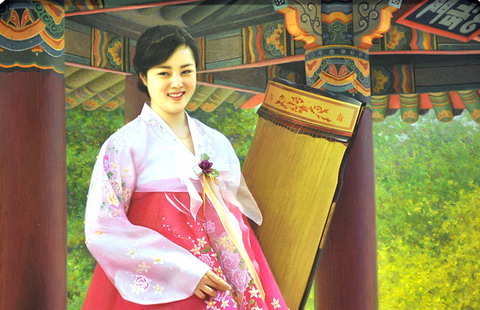
 Paintings by DPRK's Mansudae Art Studio debut in Shenyang
Paintings by DPRK's Mansudae Art Studio debut in Shenyang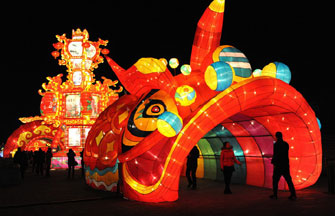
 2015 Xi'an Lunar New Year Lantern Shows kick off
2015 Xi'an Lunar New Year Lantern Shows kick off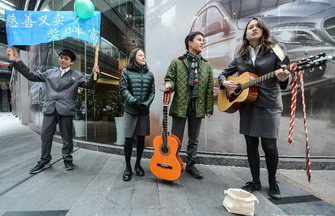
 More than 60 int'l students participate in charity bazaar in Hangzhou
More than 60 int'l students participate in charity bazaar in Hangzhou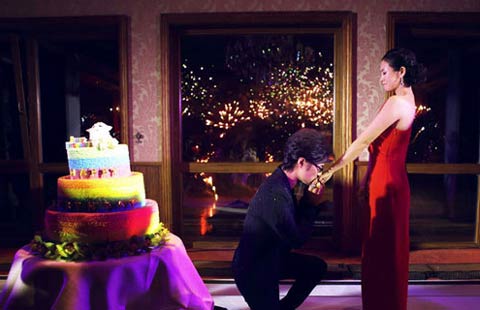
 Crouching Tiger actress says yes to proposal: media
Crouching Tiger actress says yes to proposal: media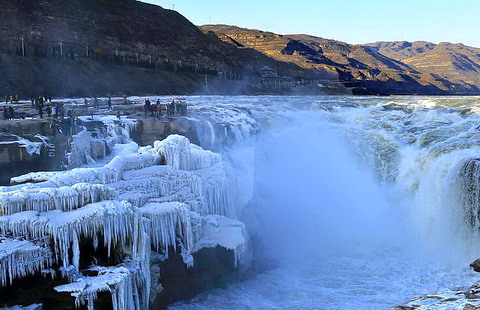
 Frozen Hukou Waterfall
Frozen Hukou Waterfall
 It's bikini time in winter
It's bikini time in winter
Most Viewed
Editor's Picks

|

|

|

|

|

|
Today's Top News
Dalai Lama meeting 'unnecessary provocation'
Chinese Navy officers end US tour
Times Square: a Lunar hotspot?
Trade numbers take big hit in January
US pledges to develop constructive relationship with China
Venezuela's economic woes to continue: Panel
Democratic effort to define Jeb Bush starts with Mitt Romney
China seeks compensation from Mexico after high-speed project suspended
US Weekly

|

|







